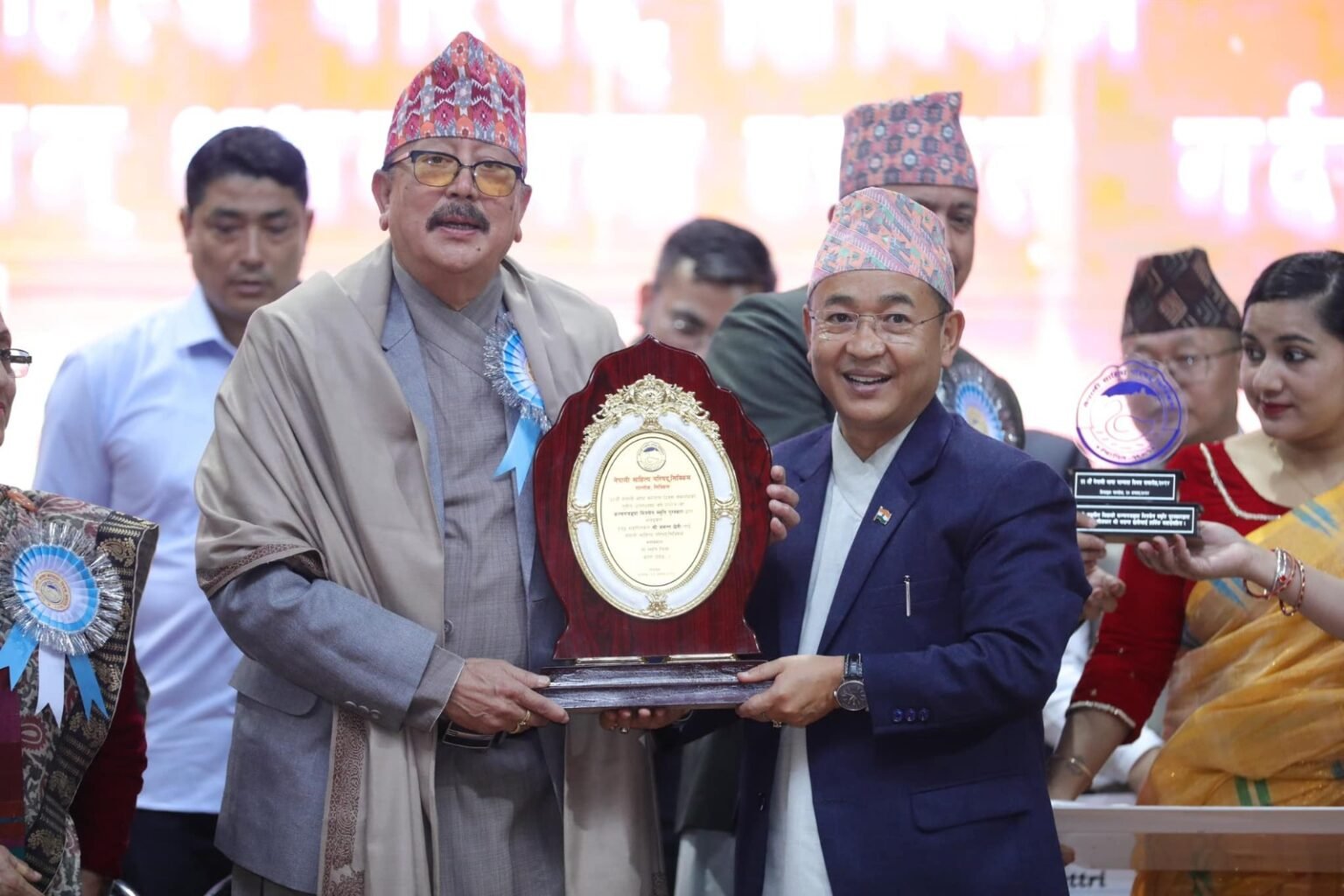GANGTOK: Chief Minister Prem Singh Tamang-Golay, along with his spouse Krishna Rai, graced the 33rd Nepali Bhasa Manyata Diwas celebration, organised by the Nepali Sahitya Parishad, Sikkim, at Manan Kendra on August 20.
The Chief Minister in his address conveyed his greetings to all Nepali-speaking individuals around the world on the occasion of the 33rd Nepali Bhasa Manyata Diwas. He emphasised that the survival of a community and its identity is intricately linked to the preservation of its language.
“It is often said that a community faces extinction if its language vanishes entirely. Scholars rightly assert that language and culture form the bedrock of any caste or community, and it is universally acknowledged that they are essential for existence.”
PS Golay
He highlighted the rich and melodious nature of the Nepali language, which has endured significant struggles to achieve constitutional recognition. He acknowledged the substantial contributions of Nepali-speaking individuals from across India in the Indian freedom movement. The initial demand for recognition of the Nepali language, put forth by the late Anand Singh Thapa in 1956, was ultimately fulfilled by the Bharatiya Nepali Rashtriya Parishad, led by the late Nar Bahadur Bhandari, he informed.
The Chief Minister remarked that the final phase of this struggle, championed by late Nar Bahadur Bhandari, would not have reached a successful conclusion without the sincere support of the then Lok Sabha MP from Sikkim, Dil Kumari Bhandari. He urged everyone to recognise and appreciate the invaluable contributions of both Nar Bahadur Bhandari and Dil Kumari Bhandari. Additionally, the Chief Minister paid tribute to all those who contributed in Bhasa Andolan directly or indirectly.
Chief Minister Tamang expressed his disappointment regarding the Nepali language’s stagnation in growth and development following its Constitutional recognition, which was achieved through the activism of the then state government under Nar Bahadur Bhandari. Moreover, he emphasised the need to advance both literature and language, advocating for writing that appeals to global audiences to enhance the richness of our literary heritage. He urged for the translation of our literary works to ensure their visibility in the international arena, stating, “We must share our cultural narratives with the world, ensuring our books find their way into renowned libraries.” Reflecting on the past, he noted that literary works often faced premature cessation if authors did not align with the government’s views. However, he assured that the current government is supportive and accessible to all.
The Chief Minister also pointed out various initiatives undertaken by the state government to promote language, literature, and culture. He noted that upon assuming office, the government declared August 20th as Bhasa Manyata Diwas, a public holiday, and achieved a significant milestone by eliminating the immigrant label previously assigned to Sikkimese Nepalis. He expressed gratitude to the Central Government and the Supreme Court of India for this development.
Addressing the concerns raised, the Chief Minister announced that official notifications will now be published in Nepali along with English, and government advertisements will also be published in Nepali. He encouraged the use of Nepali for office noting and acknowledged the inclusion of the Nepali language in the B.Ed programme. Additionally, he announced a grant of 10 lakh rupees to support the functioning of the Nepali Sahitya Parishad.
Additionally, he mentioned the government’s support for scholars and writers through
initiatives like the Apatan Fellowship and sponsored publications. Dr Krishna Sapkota, Khangchendzonga State University, in his address on the status of the Nepali language following its constitutional recognition, delved into the language’s history, the challenges faced during its inclusion in the Eighth Schedule of the Constitution, and paid tribute to those who contributed to its recognition. He also discussed the achievements of the Nepali language and discussed strategies for elevating the language to global prominence.
Additionally, he suggested that office noting could also be written in Nepali, and official
notifications could also be issued in Nepali language. On the occasion, the committee also felicitated Keshav Dahal, a student from Sikkim Central University, and honored him with the ‘Prem Lall Smriti Shikshak Puraskar’ for achieving the highest score in the Nepali subject during his Master’s degree.
Following that, musician Basant Chettri was honored with the Kanchenjunga Mitrasen Smriti Award by the Chief Minister for his contributions to the Nepali musical community. An introductory video was presented to highlight the achievements of Mr Chettri. The awardee briefly narrated his musical journey and expressed gratitude to the committee for the recognition.
Additionally, the Chief Minister launched various books at the event and unveiled the upcoming poster for the national-level Kavi Sammelan, to be presented by Dainik Jagaran.






